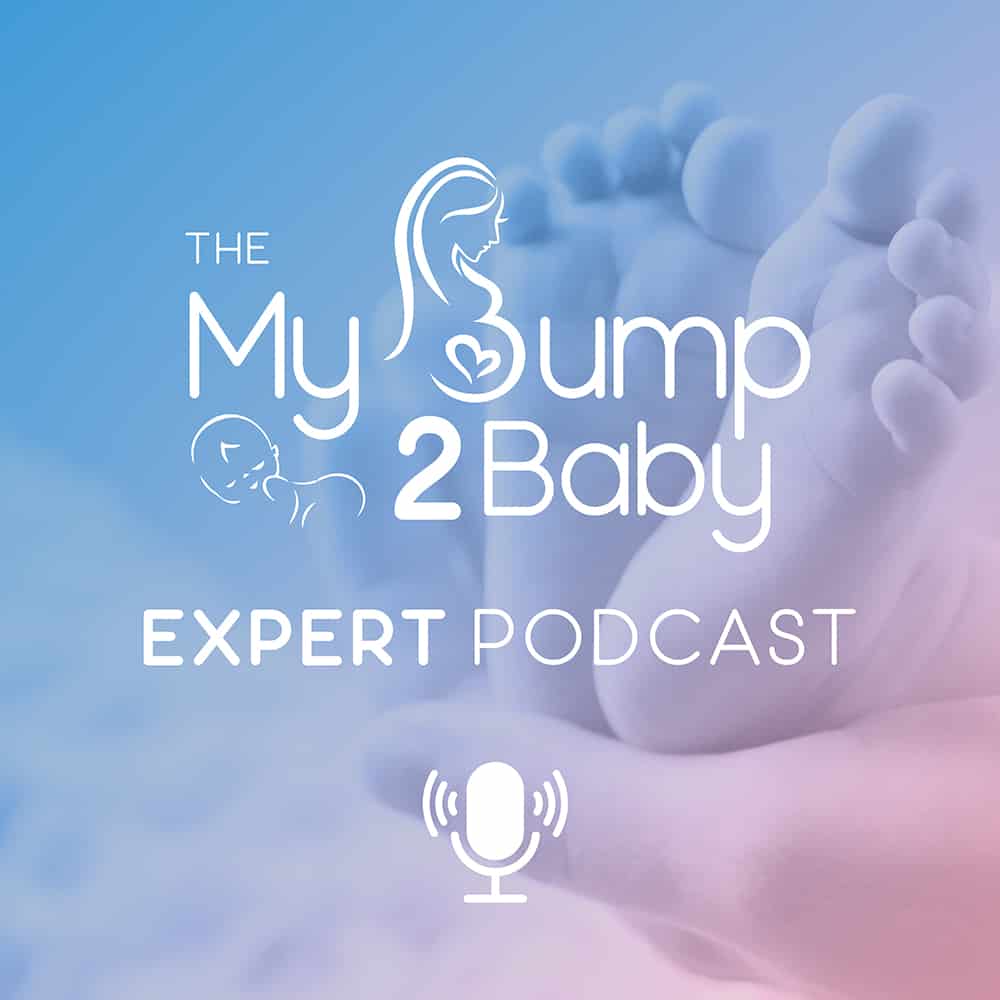- Consent to Fertility
Nichola Bright partner at Myersons solicitors LLP in Altrincham and today we are talking about Consent to fertility Treatments
In today’s episode we cover fertility treatments, the law around them, capacity, what happens if someone lacks capacity, freezing eggs and embryos and much more.
For any questions you can contact Nichola Bright via email [email protected]
We can be found on LinkedIn: (1) Myerson Solicitors: My Company | LinkedIn
Instagram: Myerson Solicitors (@myerson.solicitors) • Instagram photos and videos
Facebook: Myerson Solicitors | Facebook
Our website: Myerson Solicitors | Altrincham, Manchester & Cheshire
[00:00:00] Carla: Hi guys, it’s Carla Lett here the founder of My Bump 2 Baby, and I have some really exciting news for you guys. So I am going to be launching the ultimate blogging course, a course that is gonna show you how to blog successfully online. Whether you are a mum that wants to earn a passive income online from the comfort of your own home and work around your family, or you might be a business owner that wants to bring more people to your website, Whatever your blogging goals are, I can help you and I want to share this course with you.
[00:00:38] My course is gonna be launched on the 1sr of the 11th, 2022, and the first 111 people to access my course and purchase it are gonna get a jaw dropping discount. If you are interested in finding out how to blog, then join my mailing list where I’ll be sharing lots of free tips, tools, and training to support you on your blogging journey.
[00:01:04] So you can subscribe to my mailing list by heading to mybump2baby.com/blogsubscribe. The link should be at the bottom of this podcast. Really excited to see you over there.
[00:01:28] Hello and welcome to my Bump 2 Baby Expert podcast, where we bring experts from all over the UK to answer your questions on everything pregnancy to preschool.
[00:01:54] Hello everybody and welcome to my bumped Babies Expert podcast. Today I am joined by Nichola Bright, partner at Myerson Solicitors in Altrincham. And today we are talking about to fertility treatments. I hope you enjoyed this episode.
[00:02:16] Hello everybody and welcome to My Bump2 Baby’s Expert podcast. Today I am joined by the lovely Nichola Bright partner at Myerson Solicitors. Um, in Altrincham. Hello, Nichola, how are you?
[00:02:30] Nichola: Hello. Oh, thanks for having me. I’m fine. How are you?
[00:02:32] Carla: I’m really good and I’m looking forward to this subject because, um, my bump 2 baby, I mean, this subject that we’re gonna be talking about today is content to fertility. Yeah. And, um, my bump 2 baby writes a lot of articles around trying to conceive and I for one, know that just cause you’ve had a smooth sailing, uh, pregnancy the first time around and you’ve got pregnant quite quickly, the second time can be quite different. Yeah. Third time can be quite different again. So obviously it, we live in an amazing world where there’s so many things that people can do now in terms of fertility, which is just incredible.
[00:03:10] Um, but there is, you know, Issues around those things and you are the expert on this subject. So we’re gonna kick off with, um, some questions for you, Nicola, if that’s okay?
[00:03:22] Nichola: That’s absolutely fine. Go ahead.
[00:03:23] Carla: So what is the law surrounding fertility treatment?
[00:03:28] Nichola: So there, there’s various, um, legal provisions surrounding treatment.
[00:03:33] So we, we often advise individuals or couples and sometimes clinics on the law surrounding fertility treatment. So deciding to start a family is one of the most important decisions that anyone will make in life. So whilst, like you said, not all couples can conceive naturally, fertility treatments like IVF give people a really good chance to have a family.
[00:03:56] Um, however, there is a caveat to that. I, I often advise people who, who before they start treatment, that process, I’ll tell them it’s really important to seek legal advice at an early stage on things like the consent to the fertility treatment. So most couples will obviously use a license fertility clinic within the uk.
[00:04:18] Carla: Mm-hmm. .
[00:04:18] Nichola: So you’ll get couples who go abroad and then the legal provisions are slightly different. So for the purposes of today, I’ll talk about couples who are going to treatment in this country.
[00:04:27] Carla: Great.
[00:04:29] Nichola: Um, some couples don’t realize that if they try and do what’s called DIY insemination, you might have seen program on the TV about this.
[00:04:39] You know, men who father hundreds of children by donating their sperm. I think there was a channel 4 documentary about a year ago about this. I dunno if you saw it. So that can create a whole host of problems. So if, for example, you’re using a donor for sperm on a DIY basis, you found someone online, there are websites for it, believe it or not, and you have no intention of that donor being part of a child’s life, that that is not what happens.
[00:05:04] So if you use a donor on that basis without going to a clinic, The sperm donor will be the legal father of the child when the child’s born, so that person could, if he wanted to ask for contact. Ask for parents responsibility, make an application to the court at the same time he could be ordered to pay maintenance.
[00:05:26] So it creates this obligation relationship between parents and then the responsibilities of that a parent has , so it could be if you don’t go to a clinic you’re in, you could be in trouble.
[00:05:36] Carla: Yeah. So I thought, I mean, this is me, being naive here, that if he wasn’t on the birth certificate, , then you know that that couldn’t happen, so that actually someone could come forward and say, actually.
[00:05:49] Nichola: Yeah, and how you get around. If you were a father who donated and you, you might have a situation, and you do get it a lot where friends decide to enter into these sort of co, well, not co-parenting, but these sort of relationships where they, you might have a lesbian couple who haven’t got obviously the sperm to use to conceive.
[00:06:09] They may have a friend who’s willing to do it for. And he is saying to them, I’ll do this for you on a donor basis, and they’re thinking, Okay, he doesn’t want anything to do with the child. And then things change as soon as that baby’s born. There’s been a whole host of cases in the courts about this, where the father, the legal is the legal father, he’s a biological father, has then changed his mind and then wants to be a part of that child’s life.
[00:06:35] He can apply for what’s called a declaration of parentage, which puts him on the birth certificate. He can then apply for parent responsibility. He can then apply for contact and residents and, and lots of, lots of different things that come to that, come with that. So he can apply for things like going on holiday with a child, Christmas contact.
[00:06:53] You know, the list is endless. The legal battles are complicated, expensive, often fraught with, you know, lots of cost implications. It can cost a fortune to hire barristers for these types of things. Um, so yeah, it’s, it’s quite common actually that people enter these, enter into these arrangements, not realising the implications.
[00:07:16] Carla: I can imagine that, because I think when you see your friends and they’re struggling, it’s so easy to kind of give them, Yeah, give out that, you know, put that hand out there and you don’t really think about the future.
[00:07:27] Nichola: No.
[00:07:28] Carla: At the time you just want your friends to feel better and you wanna solve the problems, don’t you? And I suppose these are things that really. People need to think about before, Before they enter in these agreements. Yes.
[00:07:40] Nichola: Yeah, So it can be quite complicated just to contrast it with if a couple or a single person went to a clinic, so a regulated clinic, so they then had IVF or ie, whatever they needed to conceive.
[00:07:52] To contrast it in that situation, the woman who gives birth to the child is always going to be the legal mother, so she’s always going to have the legal parent’s responsibility of that child when the child’s born, and that’s whether or not she used donor eggs. Donor sperm or both, because she’s gone through a clinic.
[00:08:11] She’s the legal parent. If she’s married or in a civil partnership, it’s her husband or wife or civil partnership who will be the other legal parent by law. So it’s very simple. There is no, the donor of the sperm, for example, if they use donor sperm or donor eggs or, or, or both. Is, is is off the scene.
[00:08:32] They don’t have any legal rights. It’s the, it’s the husband or the wife of that woman or the civil partner of that woman who will be the other legal parent by law. So it’s quite simple.
[00:08:42] Carla: Wow.
[00:08:42] Nichola: If you go to a clinic.
[00:08:44] Carla: If on. Sorry to throw so many questions at you there, it just sprung to mind. Surrogate surrogacy. Because, because that’s, that’s coming up a lot now, you know? Yeah. You see the celebrities doing that.
[00:08:56] Nichola: Yeah Kim Kardashian.
[00:08:57] Carla: Yes. I noticed that the other day. And she’s in the hospital bed as well. Bless her. Yes. So yeah, I did see that picture. Um, which, you know, I just think whatever way you do motherhood is beautiful. I really do. And, and, but with the surrogacy side, how does that work for then, then? Because as you said, I’ve donored my eggs to someone to carry the baby cause I had a short cervix. So next time if I did want another one, that might be something that I would look at. Yeah. Would that person that had um, my eggs, they would be the legal.
[00:09:31] Nichola: So if you went through a, you’d have to go through a clinic cause you’d have to have the eggs inseminated. So it’s not a case of the situation I was talking about before with donor. It’s, it’s physically impossible obviously in this situation with surrogacy. So what happens then is the law. It’s, it’s, there’s, there’s a whole host of other rules for surrogates, which protect intended No, it’s fine.
[00:09:51] It’s really simple to explain. You’re right in assuming that when the baby is born, the legal mother is actually the surrogate for a short time. However, you have to apply for a parental order. So the intended parents say you and your partner would apply for a parental order at that point to have all the legal rights transferred to you.
[00:10:14] So you then make the application, I think it’s within six weeks of the child’s birth. You make the application to court, and it’s a special division of the court in London actually, that deals with these applications. And there would be a welfare reporter who would just. Double check everything, visit you, visit the surrogate check.
[00:10:34] Everything’s not been, you know, done correctly. There’s nothing under hand. Um, you know, you’ve only paid her sort of reasonable expenses. That’s another thing that’s looked at like the expenses. Cause surrogacy in the uk like commercial surrogacy in the UK is actually illegal. You can’t pay someone to have a baby for you, but you can pay her expenses and they are, that’s quite far reaching.
[00:10:54] You can even pay for her to go on holiday to recover from the birth. It’s, it’s quite far reaching. Yeah. But you do need to pay for. You need to show what you’ve paid for and show, show the expenses, so all that will get checked out. There’ll be general welfare checks on, on everyone to check this is what what was intended, that the child’s in the right place.
[00:11:11] The child would go home with you after birth. It’s just that the legal rights would need to be transferred by way of this order.
[00:11:17] Carla: Mm, I understand.
[00:11:19] Nichola: So, yeah. So yeah, the law doesn’t change on birth, doesn’t give the intended mother the immediate legal rights, but because it’s a surrogacy situation, you’re allowed to apply for a parent order quite soon.
[00:11:29] Carla: Right. Yeah. Right. That’s great. I think we, we’ve touched on quite a lot there actually. I mean, it’s good because,
[00:11:36] Nichola: No, it’s really interesting,
[00:11:37] Carla: you know, There’s so many different options nowadays, which there is. We are very lucky, aren’t we? So, yeah. So, um, what is capacity? Cause I’ve heard that before.
[00:11:48] Nichola: Yes, absolutely. So, capacity in a legal sense is determination of to whether or whether someone has or lacks the mental capacity to make a decision for themselves. So, typically capacity would be lacking if someone was severely mentally ill or became disabled or been in an accident, for example, brain damage and the capacity would have to be determined by medical professionals.
[00:12:12] So lawyers can’t determine capacity. We can have an idea about whether someone lacks capacity and most mostly common sense would dictate that. But really we’d need a medical professional to determine whether someone lacks capacity or not. So in the sense of in, in, in the context of fertility treatment, so at the start of fertility treatment, each person who goes for the treatment, so typically a couple would be asked to declare what they would like to happen with their eggs or sperm or embryos if they died or became incapacitated at any point.
[00:12:46] So if the consent to the use of those, um, eggs, sperm and embryos was, wasn’t given by the person who then dies or becomes incapacitated, the clinic wouldn’t be able to use them with the surviving or the non incapacitated parent. So the, they would have to technically be destroyed. They wouldn’t be able to use them.
[00:13:06] It’s, it is effectively like withdrawal of consent to the use because they explicitly provided the consent, the consent’s not there, so the other person can’t use them. Um, the consents themselves have to be in writing and signed by the parents, the intended parents. Um, but there are exceptions. So this is another, this is another example of how complex things can be.
[00:13:31] Um, So there have been legal challenges to this principle. So I don’t know if you remember a few years ago there was a really big case and there was a lady called Diane Blood, and she, um, used, she fought a battle to conceive using her dead husband’s sperm.
[00:13:49] Carla: Yes.
[00:13:50] Nichola: Which had been collected without his consent after he got meningitis, but he was incapacitated.
[00:13:56] Carla: Oh.
[00:13:56] Nichola: So the court in the UK decided that it was an infringement of her EU rights, EU law to deny her the right to get the treatment elsewhere in Europe. So although they couldn’t lawfully have the treatment in England with her husband’s sperm, they allowed her to use it in Belgium where she was successful.
[00:14:16] So that, I thought that was quite a, a good outcome.
[00:14:19] Carla: Yeah.
[00:14:19] Nichola: I mean, it’s a brilliant outcome for her. She’s, she’s, she’s had a child since. Um, so it, it can be challenged in certain situations. Obviously that was a very tragic circumstance. He, you know, he got meningitis. It wasn’t expected. Yeah. So.
[00:14:35] Carla: Oh goodness. Yeah. And you just think
[00:14:37] Nichola: It can be challenged, but yeah, generally, if there’s no consent, you’re on, you know, you’ve got an uphill struggle. So all the clinics that I work with, you know, any regulated clinic should be getting this consent from both parents when they take any, when they take any egg sperm, or make embryos out of that for the couple.
[00:14:55] Carla: So if, um, we’ve got people listening and they want to kind of ask you about these clinics that you work with, that, that would be okay and we’ll pop your details at the end.
[00:15:04] Nichola: Absolutely. That’s fine.
[00:15:05] Carla: That’s, that’s great. What I’m gonna, sorry if this, this catches you off guard, but say for example, um, a couple went for ivf.
[00:15:14] Nichola: Yeah.
[00:15:14] Carla: Um, and, you know, they were successful the first time they’ve got eggs stored.
[00:15:19] Nichola: Yeah.
[00:15:19] Carla: If that couple then divorces. Mm-hmm. . But they have had the consent.
[00:15:25] Nichola: Yeah.
[00:15:25] Carla: What would happen then?
[00:15:26] Nichola: They withdraw it, so Yeah, so they can withdraw the consent. So on separation, one of the couple may decide that they don’t, and this does happen regularly.
[00:15:38] One of the couple may decide that they don’t want their embryos or sperm or eggs using and there, because it’s a unilateral decision, there’s nothing the clinic or the other person can do. They, they cannot be used. The, the consent to treatment is a dual consent and if someone withdraws, someone withdraws their consent to the future use of their frozen embryos or sperm, or eggs, the other person can’t do anything about it.
[00:16:05] So it can be quite sad.
[00:16:06] Carla: Mm.
[00:16:07] Nichola: But obviously that that embryo is half theirs and they, they naturally may not want it to be used.
[00:16:13] Carla: Of course.
[00:16:14] Nichola: Um, it’s, it’s very difficult and this does come up in divorce sometimes, and it is heartbreaking because sometimes you’ll get perhaps the intended mother saying, Well, I don’t care if he’s off the scene and divorcing me.
[00:16:27] I still want to have his baby. But if he’s withdrawn his consent to the use of that embryo, She’s in a very difficult position. She wouldn’t be able to do anything about it. She effectively could meet a new partner and have IVF with him and have new embryos created. There’s nothing stopping that. But she wouldn’t be able to use her previous husband’s embryo. The, the embryos created with his sperm.
[00:16:51] Carla: Right. Okay.
[00:16:52] Nichola: So it it, it is sad when that happens. It does happen regular. And sometimes the couple might agree to donate their embryos in that situation jointly donate. So although they can’t use them together, they might say, Well, we’ll actually donate them so other couples can use them.
[00:17:06] Carla: Oh, that’s lovely. Yeah. So that can happen. . Oh God, I feel like I’m gonna cry. I think of those, but, Oh, it’s sad isn’t it.
[00:17:14] Nichola: It’s really sad. But if something can come out of it, they can, rather than be destroyed, they can be donated.
[00:17:20] Carla: Right. Yeah. So I suppose as well, um, for women, a lot of women. Um, I mean, I know I did it worry about your age, don’t you? I mean, not that.
[00:17:29] Nichola: Yeah, naturally.
[00:17:30] Carla: Not that it matters as much. Now I see a lot of older women like myself, well saying myself, um, how old am I? 36. Nearly.
[00:17:37] Nichola: Same as me. Not old.
[00:17:39] Carla: Not old. Not old are we?
[00:17:41] Nichola: No.
[00:17:41] Carla: But um, but we class as geriatric mums. Aren’t we really?
[00:17:45] Nichola: I know we are
[00:17:46] Carla: Through the IVF process now with our partners.
[00:17:49] Nichola: Mm-hmm.
[00:17:50] Carla: and then we got a divorce from them in, say, 10 years. Mm-hmm. . But there might be the embryos, you know, that you’ve used together. That you’ve created together, and then it’s, And then you’re older, aren’t you? And then, Yeah.
[00:18:04] Nichola: Yes. And you might have to start again with someone else, or you might think to yourself, because as a single parent, you can go through IVF on your own.
[00:18:13] You don’t need to go through IVF with someone else. You could go through IVF with and use donor sperm.
[00:18:18] Carla: Mm-hmm.
[00:18:19] Nichola: That way. And make that decision. But you would be, obviously the, the baby wouldn’t have any genetic relationship with your ex-partner. It would be a donor that, that’s the compromise. But you wouldn’t be able to use the embryos that you’d created if he, Yeah, if he withdrew his consent at that point.
[00:18:37] But, embryos can be stored for up to 55 years, believe it or not.
[00:18:41] Carla: Wow.
[00:18:41] Nichola: With 10 year renewals in between, so typically 10 years every time 10 years elapses you, you, you have your renewal, but up to 55 years you can have embryos stored.
[00:18:53] Carla: Wow.
[00:18:53] Nichola: And eggs and sperm. Yeah. It’s a long time.
[00:18:56] Carla: My goodness. Wow.
[00:18:57] Nichola: Yeah.
[00:18:58] Carla: That’s incredible.
[00:18:59] Nichola: I know it is.
[00:19:00] Carla: So can, um, fertility treatment still be given if they lack capacity? If someone lacks capacity.
[00:19:09] Nichola: Generally, no. Unless they became incapacitated after the treatment started and they’d already given that consent. So it may well be so, So no. So the answer to your question, someone that lacks capacity wouldn’t be able to have fertility treatment because they wouldn’t be able to produce the required consents to treatment.
[00:19:33] Carla: Okay.
[00:19:34] Nichola: There could be an argument. The right to family life there in terms of someone could argue on someone’s behalf that that infringes on their right to family life, which is a human right, and that would be something that would have to be legally challenged, potentially by human rights lawyer.
[00:19:54] Carla: Mm.
[00:19:55] Nichola: If a couple start the treatment and they both have capacity and then one of them becomes incapacitated after they’ve gone to the clinic, but before the treatment started.
[00:20:05] Carla: Mm-hmm.
[00:20:06] Nichola: And they’ve said that yes, you can use my sperm and eggs and whatever, it’s embryos, whatever it is, they then the person can go through the treatment, so to speak, if they’ve already donated, even though they lack capacity, as long as they’ve consented to it. So similar situation to what I explained before, as long as they’ve consented to their, their eggs and sperm or embryos being used at the point of instructing the clinic for help and, and to say, Look, we want to start ivf, even if the IVF hasn’t actually started and that, and you know, there’s a tragic accident or something happens and that, say it’s the husband that’s incapacitated, the wife can still go ahead and use his sperm or the embryos, whatever it is that they need, as long as he’s written and signed the consent.
[00:20:52] Carla: Oh gosh.
[00:20:53] Nichola: So that, that, that’s a bit like what happened with Diane Blood, only the consents were given. So she fought it in court and then won, um, in terms of, not won, but she, she got the right to go to to Belgium.
[00:21:03] Carla: Yeah.
[00:21:03] Nichola: Yeah. Yeah. So, so that, it depends when the, when they became incapacitated, it would be very difficult for someone who was incapacitated to make that decision with someone else to have IVF course from a, from a legal point of view, because, If they are incapacitated to the point, they can’t make decisions for themselves, they can’t make legal decisions for themselves, my view is that clinics would be quite concerned about taking them on as a patient.
[00:21:32] Carla: Yeah. Yeah, course.
[00:21:34] Nichola: Yeah.
[00:21:34] Carla: Goodness. So, So, um, any other fertility treatments that you think we’ve not, I know we’ve mentioned quite a few here.
[00:21:42] Nichola: The main ones are IVF and icy, which is very similar. It’s, it’s like an extra layer of, um, treatment within the IVF process.
[00:21:51] Carla: Right. What about, um, freezing your eggs, you know?
[00:21:56] Nichola: Yeah.
[00:21:57] Carla: What, what about that? Because there’ll be some people listening to this podcast that have previous children.
[00:22:02] Nichola: Yeah.
[00:22:02] Carla: They might want more, but they haven’t met the, the right person yet, or they don’t want to do it yet. What, what’s the,
[00:22:09] Nichola: Yeah, so you, the law around that so anyone can freeze. Can freeze their sperm, or their eggs. It’s more common for women to freeze their eggs. Because eggs decline with age in terms of the quantity and the quality of them. So you get more women donating their eggs, Sorry, not donating, freezing their eggs.
[00:22:27] Carla: Yeah.
[00:22:27] Nichola: As opposed to men freezing their sperm. Um, it’s a case of the individual going to a clinic, finding the right clinic for them.
[00:22:37] Obviously everything comes with the cost. You know, you have to pay for this and there’s an annual fee to have them stored as well. Um, In terms of storage of those, you obviously they’re retrieved, so you have to have an operation to retrieve your eggs, and then they’re stored for up to 55 years with the 10 year renewable.
[00:22:54] So generally people decide to freeze their eggs maybe when they’re in their. Thirties and forties.
[00:23:01] Carla: Mm-hmm.
[00:23:02] Nichola: And may with, with, with a view to using them within the next 10 years. So, so they’re stored for that point. But if you get to the 10 year point and you need to renew for another 10 years, that, that’s absolutely fine.
[00:23:12] Some people will freeze their eggs very young cause perhaps they’ve had to have chemotherapy or somethings happen to the, to their health and they might freeze very young. You know, there’s, there’s cases where, In childhood and puberty, eggs are frozen because of perhaps cancer treatment that’s, that’s coming up.
[00:23:29] So that that can happen. And in which case, that’s why we need the extra years. 10 years isn’t enough. You need to keep renewing cause you might have quite a young person freezing their eggs. And you need a long time. Um, but yeah, freezing as is very common now. Lots of people do it. It’s um, a great way of preserving your facility.
[00:23:48] Lots of clinics encourage it. Lots of doctors I speak to encourage it. Um, It’s usually when you get to the point of your egg reserve dropping that you think, Oh, I really need to do something. But at least if you can retrieve a few eggs, the better. It’s even better to try and freeze embryos. So if you have met someone, but you’re not ready to have children, To freeze embryos is great because you know that those embryo, the viable ones be ready to implant when you’re ready.
[00:24:18] Whereas with the eggs, you’ve got to then get through the whole process of them being viable and match with sperm and then embryos being viable from them eggs. So sometimes you might freeze 20 eggs, but only 10 of them will turn into embryos and perhaps only five of them will be viable. So it’s, it’s better to freeze embryos if you can, but that, that might not be possible if you’ve not met someone. So lots of people do freeze their eggs.
[00:24:43] Carla: That’s really interesting. I didn’t realize that there was the two different options there. Um, yeah, that’s, that’s really good. Yeah. And, um, sorry, another question that’s sprung to mind now is what happens. Say, um, someone’s froze embryos or, or eggs. If in 20 or 30 years is there an age limit that they can’t have them back inside back in their own body or how does that work?
[00:25:10] Nichola: Not that I’m aware of. I think clinics will advise it will, that the. If it was, if it was embryos or eggs, well, embryos would have to be created to be inserted back into, into a woman. Yes. If she, they would have to do full assessments of her from a medical point of view to see whether it was viable because of, obviously the old you get, the harder it is to have the embryo implant into your womb.
[00:25:36] And all these sort of, you know, more complicated things can arise. With birth, the older the, the older the woman is. So it might be that the clinic would advise against it if you had someone over a certain age, but you know, people are getting older and older having the, you know, Eva Longoria fifty, isn’t she? And she’s just had successful ivf. It’s, I mean, it’s just incredible. So, you know, it’s getting more common.
[00:25:59] Carla: Definitely, I think we, we are spring chickens aren’t we really when you think of it. Um, but it’s true. I mean, you are, I mean, I, I’m seeing more and more I say older. I don’t even consider these people
[00:26:10] Nichola: No.
[00:26:11] Carla: Really older at all. But it, it’s great to see really because it is, you know, I can, I can totally understand it and God, I wasn’t ready for children when my mum, my mum had my brother, I think she was around 21. I mean, yeah. I wouldn’t it have been ready at that age?
[00:26:26] Nichola: It seems to be, it’s generational. You know, my, my parents were the same.
[00:26:31] And it, it’s just, um, it doesn’t happen. Now, the, the amount of people that I know that have children, even in their twenties, I can’t even count on one hand. It, it doesn’t happen, does it? And most people are older. They are now, and, you know, 35, 40, 40 plus that, that’s quite common. Um, Lots, lots of my friends who have got toddlers are in their forties and, um, it, everyone’s in the same boat.
[00:26:56] No one sort of says, you know, classes as old parents. It’s just, it’s just the way we are now. People focus on their careers and, you know, affordability of houses. It just not the same as it was in the, of the seventies and eighties. You just, it’s so different. It’s so hard and even harder now than when I even bought a house. It’s so difficult to get on the ladder.
[00:27:16] Carla: Oh, exactly. Especially with these blooming heating bills. Oh. You know, it’s, it’s just, oh, I know. It’s crazy.
[00:27:23] Nichola: So hard.
[00:27:24] Carla: Yeah, it really is.
[00:27:24] Nichola: So if they get older, you know, the age may push back and back because people are focusing on their finances, career, feeling you know, they’ve got to feel ready for starting a family.
[00:27:35] Yeah. Um, it may be that we see trends that, you know, there are in, when, when the Office of National Statistics release next. It may be that Parenthoods, the, the average age of parents have gone up again.
[00:27:46] Carla: Yeah.
[00:27:46] Nichola: It wouldn’t surprise me at all.
[00:27:48] Carla: No, me neither. And I think, um, you just have to do what’s best for you, don’t you? No matter what age, if you’re ready, you know you’re ready.
[00:27:55] Nichola: Yeah. And that’s why Egg freezing is great, cause you can, you can use that to your advantage.
[00:28:00] Carla: It’s brilliant. Yeah. That is brilliant. Um, I know it’s, it is really, really interesting actually because, um, I’ve got quite a few friends that are really quite interested in that and it, it. It’s really, it is really, really clever how it, how sciences come about now. So, So, um, Nichola, will you tell everybody how they can find you? Um, and
[00:28:22] Nichola: Absolutely.
[00:28:23] Carla: I will pop all Nichola’s links underneath this podcast.
[00:28:28] Nichola: Yep. So you can either google, so if you Google my name and Myerson solicitors, I’ll, I’ll probably come up quite quickly cause we’ve um, we’ve got a quite a good website out there. Or you can just go straight to myerson.co.uk and then go to the family team and I’ll be on there as well. And then you can pop my details at the end of this and my email will be on there, my phone number. Um, so anyone can contact me about any fertility law related questions or surrogacy.
[00:28:52] Um, just pick up the phone. We can offer a no obligation consultation over the phone at any point. Just, just give me a call. I’m happy to help anyone who’s got a question about anything we’ve spoken about today. Or anything family law related at all, divorce, children disputes, all of that kind of thing we, we cover as well.
[00:29:11] Carla: I was gonna ask you about that actually. So, So yeah, with Myersons, you guys cover, cover the full range of things really.
[00:29:17] Nichola: We do.
[00:29:17] Carla: With your child arrangements and
[00:29:19] Nichola: Yes. Yeah. Yeah, so most of our work is split between, um, divorcing couples, so sorting out their finances and then issues to do with children, and the fertility law comes under that.
[00:29:32] So it’ll be typically disputes about where children should live or how much contact they’ll have with one parent, or both parents. Um, what should happen at school holidays, that kind of thing. Um, we do also advise on prenuptial agreements, postnuptial agreements, um, We sort of span the whole range of, of family law really.
[00:29:53] Um, yeah. So if anyone’s got any questions at all, if they’re thinking of separating or have separated and they just need a steer on what they do next with potentially divorce or sorting out what they do with their finances or they’ve got immediate financial needs and they’re worried about how they’re gonna be able to afford to pay their bills because perhaps someone’s left and them in difficulty, they’re the sorts of questions we get lot.
[00:30:17] A lot of, and we can always help. Um, yeah, full range of family law problems. And then as a firm, you know, generally we, we, we work on the private client side as well, so we have solicitors who will prepare wills, lasting powers of attorney. We’ve got, we’ve got company and corporate lawyers, we have employment lawyers.
[00:30:34] If you’ve got problems at work or employers have got problems, um, litigation generally. So commercial disputes, Yeah. So the whole range, the things we don’t cover.
[00:30:45] Carla: Mm-hmm.
[00:30:46] Nichola: Just so you know, we cover everything apart from crime and personal injury. They’re quite specialised and tend to be standalone firms, but we, we do pretty much everything else.
[00:30:55] Carla: That’s brilliant.
[00:30:56] Nichola: Yes.
[00:30:56] Carla: Right. Brilliant. Well, you all know where to go then, so.
[00:30:58] Nichola: Absolutely.
[00:30:59] Carla: So Nichola, I’ll pop your links at the end of this podcast anyway, but thank you so much for all your help today and answering all my many questions that pop into my head during. Sorry.
[00:31:10] Nichola: No problem at all. It’s fine. Anytime.
[00:31:13] Carla: Thank you.
[00:31:14] Thank you for listening to today’s episode of My Bump 2 Baby’s Expert podcast. If you’ve got any questions on this subject, all contact details are at the bottom of this podcast.
[00:31:49] My Bump 2 Baby is one of the UK’s leading parenting platforms.
[00:31:54] You can find local pregnancy to preschool groups, classes, and lessons wherever you are in the. Not only that, but you can read our honest reviews on the latest products, days out, and services that you as parents need to know about. We also work with trusted financial advisors, family, law, solicitors, and now estate agents too.
[00:32:22] If you would like to find your nearest trusted expert, head over to www.mybump2baby.com.












